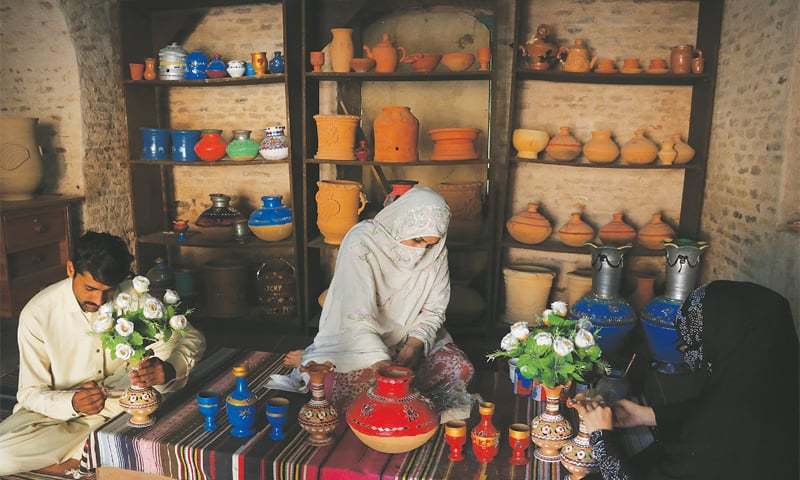In the heart of South Asia lies Peshawar, a city steeped in a history spanning over 2,500 years, renowned for its diverse cultural heritage and unique craftsmanship. Known as “Pesha War” or “the City of Artisans,” Peshawar proudly carries forward the legacy of generations of skilled artisans through its bustling bazaars like Misgran, Ratti Bazaar, Dabgari Gardens, and the legendary Qissa Khawani Bazaar.
“Wandering through these markets feels like stepping back in time,” remarked Bakhtzada Khan, a Senior Research Officer at the Archaeology and Museums Department of Khyber Pakhtunkhwa. “The air resonates with the clink of metal, the scent of wood and steel shavings, and the sight of meticulously crafted items.”
Wooden cutlery shops in Peshawar’s bazaars present a visual feast, showcasing a wide array of handmade items such as wooden spoons, blenders, kneading plates, curd mixers, and bowls. These products, with their timeless quality and unique designs, continue to attract customers not only from Khyber Pakhtunkhwa and Punjab but also from Afghanistan, the Middle East, and Central Asian Republics.
However, urban populations’ lukewarm response has led to a decline in the use of wooden cutlery, with a shift towards stainless steel and porcelain crockery. Qaiser Khan, a shopkeeper in Dabgari Bazaar, expressed concerns about this trend, emphasizing the cultural and practical benefits of traditional utensils.
Despite their cultural significance, these ancient handicrafts face challenges from societal changes and modernization. A recent study by KP educationists highlighted the decline of traditional crafts amidst the popularity of modern industrial products. Factors contributing to this decline include inadequate infrastructure, shifting career interests, and limited marketing opportunities for artisans.
To revitalize traditional handicrafts and preserve cultural heritage, experts recommend establishing accessible exhibition centers, implementing effective marketing strategies, and fostering entrepreneurship among artisans. Omair Khattak, General Manager of Investment at KP Tourism and Culture Authority, affirmed the government’s commitment to preserving this heritage through initiatives like the All Pakistan Art Festival and the Pakistan Arts and Crafts Gallery in Islamabad.
As modernization continues to impact traditional craftsmanship, experts advocate for granting the sector industrial status and providing financial support to artisans. Such initiatives not only safeguard cultural heritage but also create economic opportunities and promote exports of these valuable handicrafts.
